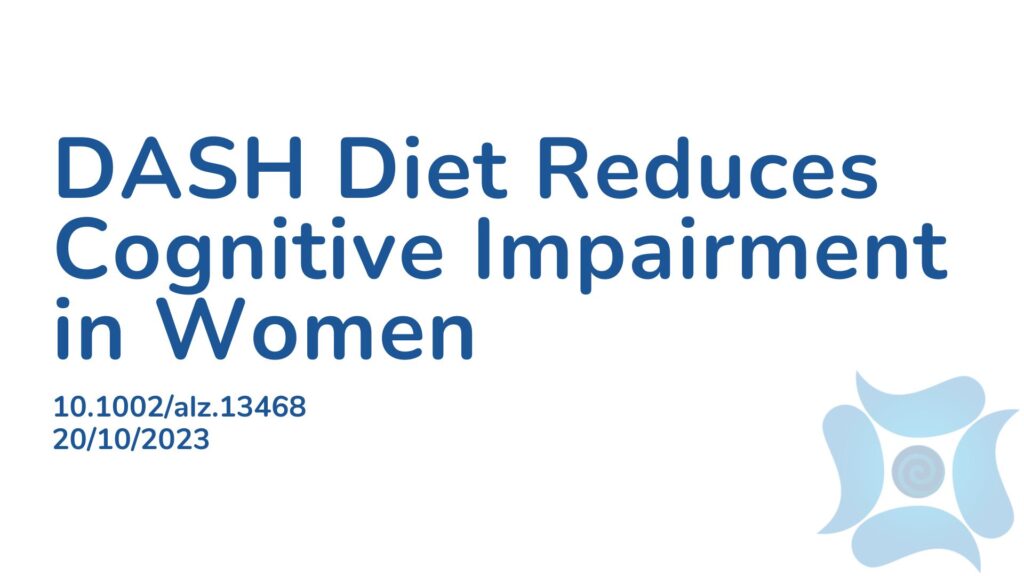Summary:
Cognitive complaints encompass self-reported impairments in daily cognitive performance such as increased memory loss. Cognitive complaints are seen as indicative of mild cognitive impairment and a potential predictor for the development of neuro-cognitive disorders such as dementia. The objective of this study was to assess the association between the Dietary Approaches to Stop Hypertension (DASH) diet consumed in mid-life (40 to 60 years of age) and cognitive complaints reported later in life, as the extent to which the DASH diet influences cognitive complaints later in life remains underexplored. This study encompassed 5,116 women who who had their cognitive health assessed for two years using a questionnaire. The results showed that a greater adherence to the DASH diet during midlife is associated with a reduced prevalence of late-life cognitive impairment in women.
Abstract:
INTRODUCTION: Evidence is limited on the role of mid-life Dietary Approaches to Stop Hypertension (DASH) diet in late-life subjective cognitive complaints (SCCs). METHODS: We included 5116 women (mean age in 1985–1991: 46 years) from the New York University Women’s Health Study. SCCs were assessed from 2018 to 2020 (mean age: 79 years) by a 6-item questionnaire. RESULTS: Compared to women in the bottom quartile of the DASH scores, the odds ratio (OR) for having two or more SCCs was 0.83 (95% confidence interval: 0.70–0.99) for women in the top quartile of DASH scores at baseline (P for trend = 0.019). The association was similar with multiple imputation and inverse probability weighting to account for potential selection bias. The inverse association was stronger in women without a history of cancer (P for interaction = 0.003). DISCUSSION: Greater adherence to the DASH diet in mid-life was associated with lower prevalence of late-life SCCs in women.
Article Publication Date: 20/10/2023
DOI: 10.1002/alz.13468




